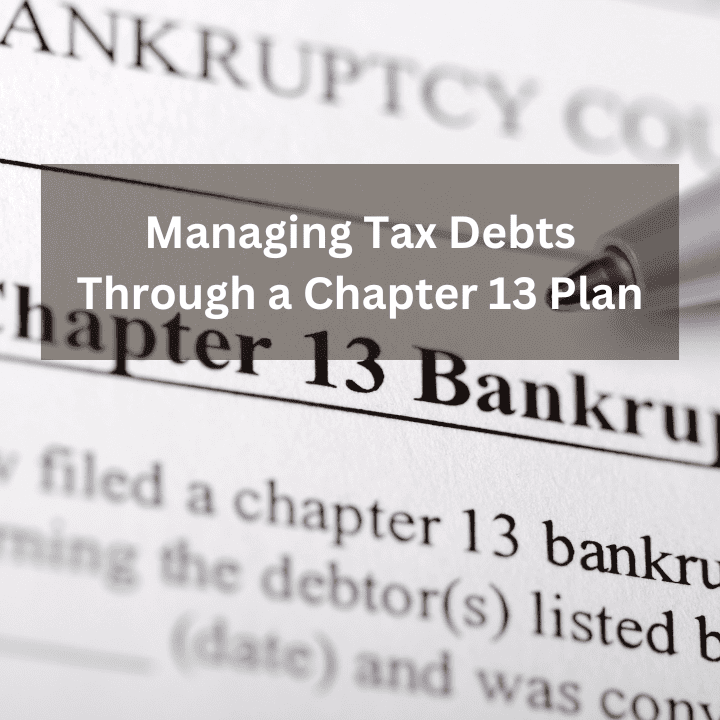
A Chapter 13 bankruptcy may allow you to eliminate a sizable portion of your outstanding debt. In some cases you pay off a relatively small amount of unsecured debts, with the remainder being discharged. However, tax debts are generally not eligible for reduction and discharge. With a few exceptions, they must be paid in full. Nevertheless, a Chapter 13 plan can be useful for dealing with tax arrears without being subjected to penalties.
The treatment of your tax debt in Chapter 13 depends upon the type of taxes you owe. These are the common scenarios:
- Priority taxes — These must be paid in full as part of your Chapter 13 plan. Examples are recent income taxes (less than three years old), recent property taxes (less than one year old), employment taxes, excise taxes and tax penalties. It is possible, though, that the monthly payment schedule approved by the court will be more favorable than any installment plan that might be offered by the IRS or other taxing authority.
- Non-priority income taxes — These are treated as any other unsecured debts, which means they are not due in full. They consist of income taxes that were due three years or more before you filed for Chapter 13, which is calculated by including any extensions granted. In addition, you must have filed your tax return covering these outstanding amounts at least two years before the Chapter 13 filing. Moreover, the taxing authority must have assessed the tax at least eight months (240 days) before the Chapter 13 filing.
Holders of non-priority debts receive a percentage of your discretionary income during the Chapter 13 plan period. The remaining debt is discharged. This often means that little payment is devoted toward satisfaction of non-priority tax debts. If there are five credits cards, a personal loan, and a tax debt, they all share a percentage of your income that is left after your living expenses are met and priority debt payments are made.
However, there is a catch. A taxing authority might file a lien in order to secure payment, especially if the tax liability is sizeable. An example is a tax lien on real property for back taxes. If a lien is filed, the tax debt becomes a secured debt, which means it is required to be paid in full.
The goal of a Chapter 13 bankruptcy is to give the debtor a fresh start, but at the same time it require a good faith effort to repay a portion of debt due. It is important to develop a plan with your attorney that meets court approval and that you can successfully maintain: one that includes the management of tax debt that you are partially or wholly obligated to pay.
Jeff Field & Associates is a full-service bankruptcy and debt relief firm with six locations in the Atlanta, Marietta, and Athens areas of Georgia. Contact us online or call 404-381-1278 for a free initial consultation.
Please fill out the form below and one of our attorneys will contact you.





